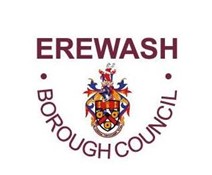Have you been finding it harder to fill your vacancies lately? Finding too few applicants or those without the skills you need? According to East Midlands Chamber research, you’re not alone as over 60% of employers have had difficulty recruiting in the past year.
As Sabina Talib, Building Better Opportunities’ Stakeholder Manager, writes, the answer may surprise you.
First, some facts: 76% of the adult population are currently in employment, the highest figure on record. The Office of National Statistics also predicts that between 2017 and 2030 jobs will be added to the economy at a rate of 3.8%, more than quadruple that of working-age population growth (0.8%).
Furthermore, it’s clear we have an ongoing mismatch between the skills of our population and the jobs available and growing in our labour market. Research undertaken by the Centre for Progressive Policy on behalf of D2N2 show clearly the undersupply of primary technical skills into some of our most important and growing sectors locally.
Therefore, it’s not surprising to find through Labour Market Intelligence, that the D2N2 working-age population is, on average, less well-qualified than the national population; with a smaller proportion of residents qualified to Level 4+ (degree level) and a higher proportion of residents whose highest level of qualification is level 1 or 2.
All of this makes the labour market very tight and the struggle to attract well-qualified applicants for job vacancies even more challenging.
Increasingly, employers have to compete harder to attract the right talent to sustain and grow their business; maximising all the talent and resource we have available in our region is essential to making our businesses more productive.
So how do we do that?
Namely, in three ways:
- change the way we recruit our future workforce: Think differently; Think inclusively.
- change the way we support and upskill our current workforce for the future; through apprenticeships, internal training and development programmes, skills exchanges and so on.
- change the way we grow and work to develop our workforce for the future: Working closer with schools, colleges, universities, and providers.
In my role as Building Better Opportunities Stakeholder Manager for Derby City, I support the work of a suite of projects enabling people to address barriers to employment and to progress.
Untapped talent exists in many forms, from those with varied and complex needs to parents returning to the workforce. These projects support individuals, but can only go so far, without the support of employers.
My work, and that of my colleagues across D2N2, has highlighted some consistent employment challenges that could be easily addressed through working collaboratively with employers, they include;
- Meeting the needs of older employees who now make up a third of the total working population
- Addressing the Low confidence and anxiety amongst applicants facing unnecessary barriers within the application processes, where constant rejection has led to ‘scarring’
- The inflexibility of both the recruitment process and terms of employment which act as a barrier for some demographics such as women ‘returners’ and carers.
Recruiting Talent
We took these findings and created the Recruiting Talent series of events, designed to encourage our employers to think differently about where and how they source their future workforce and what best practice exists to support their workforce, in remaining healthy and productive.
These events are the first step for employers to engage with this agenda and link to organisations that can support them to become more inclusive. The real work takes place after.
We need to continually work collectively to support the D2N2 economy to thrive. To be in a position where businesses are able to recruit and retain the right skills and where people are employed, helping them to earn a good wage and have a better quality of life, which ultimately leads to good health and a longer, more productive, and prosperous career.
The win-win for all is clear, what we need, is greater buy-in from employers.





























